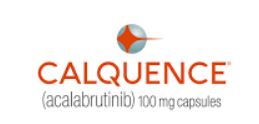FDA BRIEF: Week of October 23 and October 30, 2017

HEARTMATE 3™ Left Ventricular Assist System (LVAS)
Thoratec Corporation
INDICATION: Providing short-term hemodynamic support (e.g., bridge to transplant or bridge to myocardial recovery) in patients with advanced refractory left ventricular heart failure
REGULATORY PATHWAY: PMA, Product Code: DSQ
DEVICE DESCRIPTION:
- HeartMate 3 left ventricular assist device (LVAD) and and external components
- LVAD composed of implanted centrifugal blood pump, outflow graft with bend relief, apical cuff, and pump cable
- LVAD connected via percutaneous cable (driveline) to microprocessor-based external System Controller
- System Controller powered by either the Power Module (for hospital use) or the Mobile Power Unit that connects to the AC mains power, or by two batteries that the patient carries
- System Controller performs all power handling and monitoring functions, including
supplying power to the LVAD; communicating with the LVAD; storing system operating parameters; logging performance data; generating diagnostic information; producing visual and audible alarms; providing uninterrupted power to the LVAD during main power exchange; and displaying alarm messages, alarm history, and key operating parameters
EFFECTIVENESS AND SAFETY:
- Prospective, multicenter, randomized pivotal study comparing the HeartMate 3 LVAS with the HeartMate II LVAS; 1:1 randomization to either HeartMate 3 or HeartMate II.
- At 6 months post implantation, 86% of patients in the HeartMate 3 arm achieved success in the composite primary endpoint as compared to 77% of patients in the HeartMate II arm demonstrating non-inferiority
- Clinically significantly higher number of pump exchanges and urgent transplants in the HeartMate II arm (7.8%) as compared to the HeartMate 3 arm (0.7%)
- Overall survival rate at 6-months post implantation was comparable between the HeartMate 3 (89%) and HeartMate II arms (87%)
- Death (HeartMate 3: 11.3% vs. HeartMate II: 13.0%)
- Major infection (37% vs. 30%)
- Bleeding (30% vs. 37%)
- Right heart failure (30% vs. 25%)
- Cardiac arrhythmias (26% vs. 33%)
- Respiratory failure (22% vs. 17%)
- Renal dysfunction (11% vs. 9%)
- Stroke (8% vs. 11%)
- No suspected pump thrombosis events in the HeartMate 3 arm
REIMBURSEMENT: HCPCS C Code
 CALQUENCE (acalabrutinib) capsule
CALQUENCE (acalabrutinib) capsule
AstraZeneca Pharmaceuticals
INDICATION: Treatment of adult patients with mantle cell lymphoma (MCL) who have received at least one prior therapy
ADDRESSING UNMET NEED:
- MCL is a rare and fast-growing type of non-Hodgkin lymphoma; particularly aggressive cancer
- New treatment option showing high rates of response for some patients
REGULATORY PATHWAY: NDA
- Priority Review, Breakthrough Therapy designation, Orphan Drug designation
- Accelerated approval based on overall response rate; continued approval for this indication may be contingent upon verification and description of clinical benefit in confirmatory trials
MECHANISM OF ACTION: Inhibitor of Bruton tyrosine kinase (BTK) leading to malignant B-cell proliferation and survival
EFFICACY:
- Open-label, Phase 2 Study, n=124 patients with MCL who had received at least one prior therapy
- Tumor responses assessed according to Lugano Classification for Non-Hodgkin’s lymphoma
- Major efficacy outcome: Overall response rate (ORR) and the median follow-up was 15.2 months
- 81% had complete or partial response (40 percent complete response, 41 percent partial response)
SAFETY:
- Serious side effects: Hemorrhage), infections, atrial fibrillation, additional cancers
- Common side effects: Headache, diarrhea, bruising, fatigue, myalgia, anemia, thrombocytopenia, neutropenia
REIMBURSEMENT PATHWAY:
- Limited distribution network via oncology pharmacy services
- CALQUENCE Patient Savings Program to assist with out of pocket costs
 SOLIRIS (eculizumab) intravenous infusion
SOLIRIS (eculizumab) intravenous infusion
Alexion
SUPPLEMENTAL INDICATION: Treatment of adult patients with generalized Myasthenia Gravis (gMG) who are anti-acetylcholine receptor (AchR) antibody positive
ADDRESSING UNMET NEED:
- First new treatment in many years for MG; rare and chronic neuromuscular disorder
- First monoclonal antibody approved for use in patients with MG
REGULATORY PATHWAY: Supplemental BLA
- Risk Evaluation and Mitigation Strategy (REMS) requirements for serious and life-threatening meningococcal infections
EFFICACY:
- 26-week randomized, double-blind, parallel-group, placebo controlled,
multicenter trial, n=125, SOLIRIS vs. placebo - Primary efficacy endpoint: The primary efficacy endpoint change from baseline in the Myasthenia Gravis-Specific Activities of Daily Living scale (MG-ADL) total score at Week 26
- MG-ADL total scores: -4.2 points in SOLIRIS vs. -2.3 points in placebo (p=0.006)
SAFETY:
- Life-threatening and fatal meningococcal infections
- Increased susceptibility to infections, especially with encapsulated bacteria
- Frequently reported adverse events: Musculoskeletal pain
REIMBURSEMENT:
- No public information for new indication
Image credit: Thoratec, Astra Zeneca, Alexion
FDA Approves New Indication for Soliris (Eculizumab) As Treatment for Myasthenia Gravis
On October 23, 2017, FDA approved a new indication for Soliris (eculizumab), Myasthenia Gravis who are anti-acetylcholine receptor antibody-positive. Soliris can lower the ability of the immune system to fight infections and therefore increases the chance of getting serious and life-threatening meningococcal infections. For more information, please read the medication guide, the Full Prescribing Label, or theapproval letter sent to the manufacturer.
PD-L1 IHC 22C3 pharmDx – P150013/S006

INDICATION:
REGULATORY PATHWAY: PMA, Product Code: PLS
| Philips IntelliSite Pathology Solution (PIPS) | DEN160056 | Classification Order | Decision Summary |
| MiSeqDx Universal Kit 1.0 | DEN130042 | Classification Order | Decision Summary |